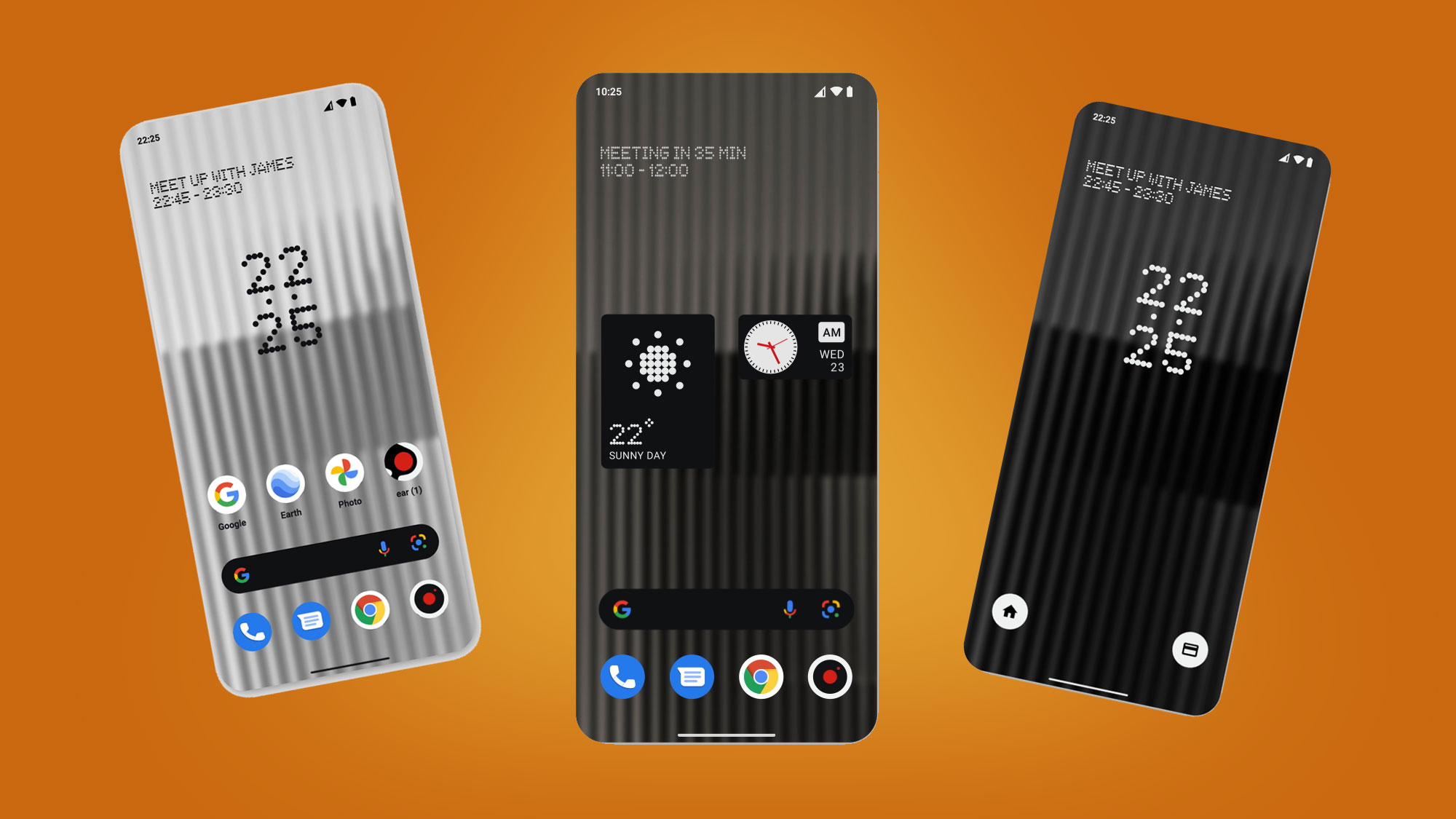
Sign up for breaking news, reviews, opinion, top tech deals, and more.
You are now subscribed
Your newsletter sign-up was successful
Carl Pei's burgeoning mobile company, Nothing, has just scored a major win in its quest to become the next major smartphone brand.
In a press release, the company confirmed that its upcoming handset, the Nothing Phone (1), will launch exclusively with mobile networks O2 and Telekom Deutschland in the UK and Germany, respectively. Customers will be able to purchase the device either in-store or online via both outlets, Nothing says.
Typically, a mobile brand signing a deal with a specific carrier wouldn’t be big news, but Chinese phone companies, in particular, have historically struggled to partner with contract-based networks, leaving prospective customers forced to reckon with the higher cost of purchasing sim-only deals in addition to the phones themselves.
That’s not to say the likes of Xiaomi, Oppo and Realme haven’t successfully partnered with network companies offering cheaper, contract-based packages, but it’s impressive that Nothing has managed to score such exclusivity deals with its first bite at the European mobile market.
“When we started Nothing we wanted to bring back the excitement we once felt for the tech industry,” CEO Pei said in a statement. “Joining forces with leading telcos and retailers, we look forward to shaking up the smartphone market together.”
In India, Nothing will continue its partnership with e-commerce platform Flipkart – the brand’s Ear 1 earbuds were made available on the platform last year – though it’s not yet clear whether this too represents an exclusive deal.
These three deals represent “the first of many” partnerships, Nothing says, so we’re expecting to hear more region-specific announcements in the coming months as we approach the launch of the Nothing Phone (1).
Sign up for breaking news, reviews, opinion, top tech deals, and more.
What do we know about the Nothing Phone (1)?
Concrete details surrounding the Nothing Phone (1) have been few and far between, but we’ve managed to build up a relatively clear picture of what to expect from the device given the myriad leaks and rumors that have emerged in anticipation of its arrival.
Company boss Carl Pei has revealed that the phone will be powered by an Android-based NothingOS and a Qualcomm Snapdragon chipset, though we don’t know which one just yet. Our guess is a Snapdragon 8 Gen 1 (found in the likes of the OnePlus 10 Pro), though we could also see the Nothing Phone (1) sport a previous generation chipset like the Snapdragon 888 or 780G – especially if Nothing hopes to keep the cost of its first phone competitive.
You’ve speculated, and now you know.Nothing phone (1) is officially coming.It’s unlike anything else.Summer 2022.Sign up for the latest updates on https://t.co/pLWW07l8G7. pic.twitter.com/Lo4UPkk7MTMarch 23, 2022
RAM is another unknown at present, however Pei did share the following tidbit during the company’s 'The Truth' event back in March: "[The Nothing Phone (1)] delivers the optimal processing power and RAM for the exact app you're using, while learning from your usage. By caching in the RAM, the apps you use the most will launch faster. The apps you're not using, but take up resources in the background, will be closed."
As for the phone’s NothingOS software, Pei has described it as "the best of Android, combined with our iconic design language,” adding that the company “started by keeping what [users] love about stock Android, and removed the bloatware."
If you’re keen to test out NothingOS for yourself, Nothing Launcher, a beta test granting users a taste of what to expect from the software on existing handsets, recently became available on all Android devices running Android 11 or higher. You can check out our thoughts about the operating system here.
Naturally, we’ll have much more to share about the Nothing Phone (1) when the device officially launches later this year. Our guess for when that'll be? Between June and September (we're counting down the days...).

Axel is TechRadar's Phones Editor, reporting on everything from the latest Apple developments to newest AI breakthroughs as part of the site's Mobile Computing vertical. Having previously written for publications including Esquire and FourFourTwo, Axel is well-versed in the applications of technology beyond the desktop, and his coverage extends from general reporting and analysis to in-depth interviews and opinion.
Axel studied for a degree in English Literature at the University of Warwick before joining TechRadar in 2020, where he earned an NCTJ qualification as part of the company’s inaugural digital training scheme.